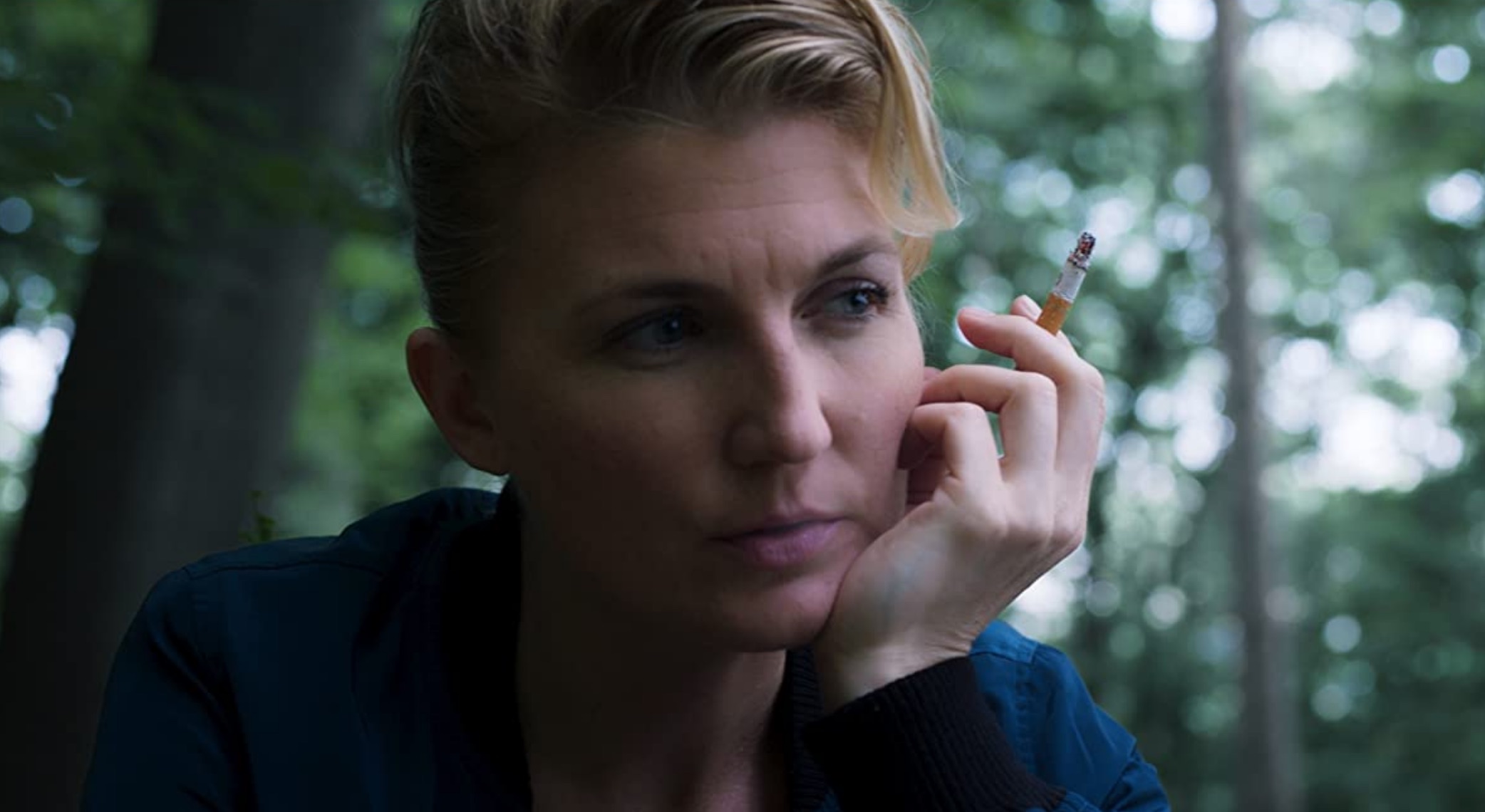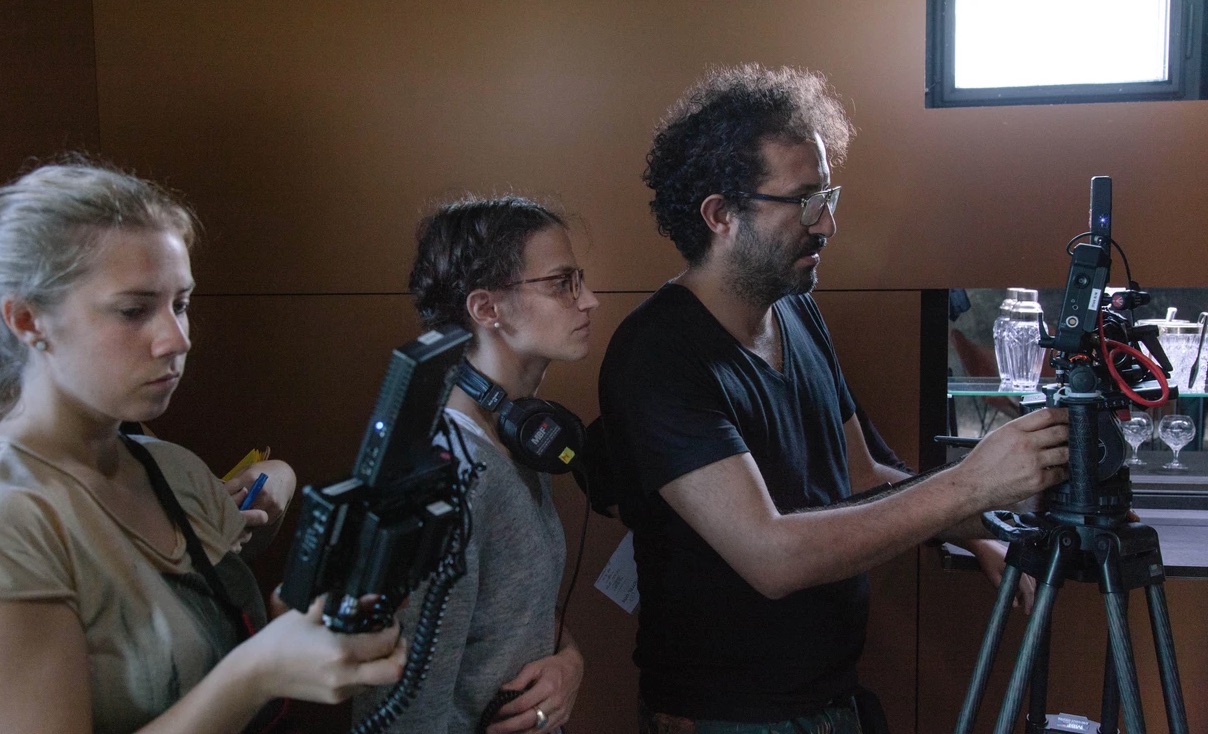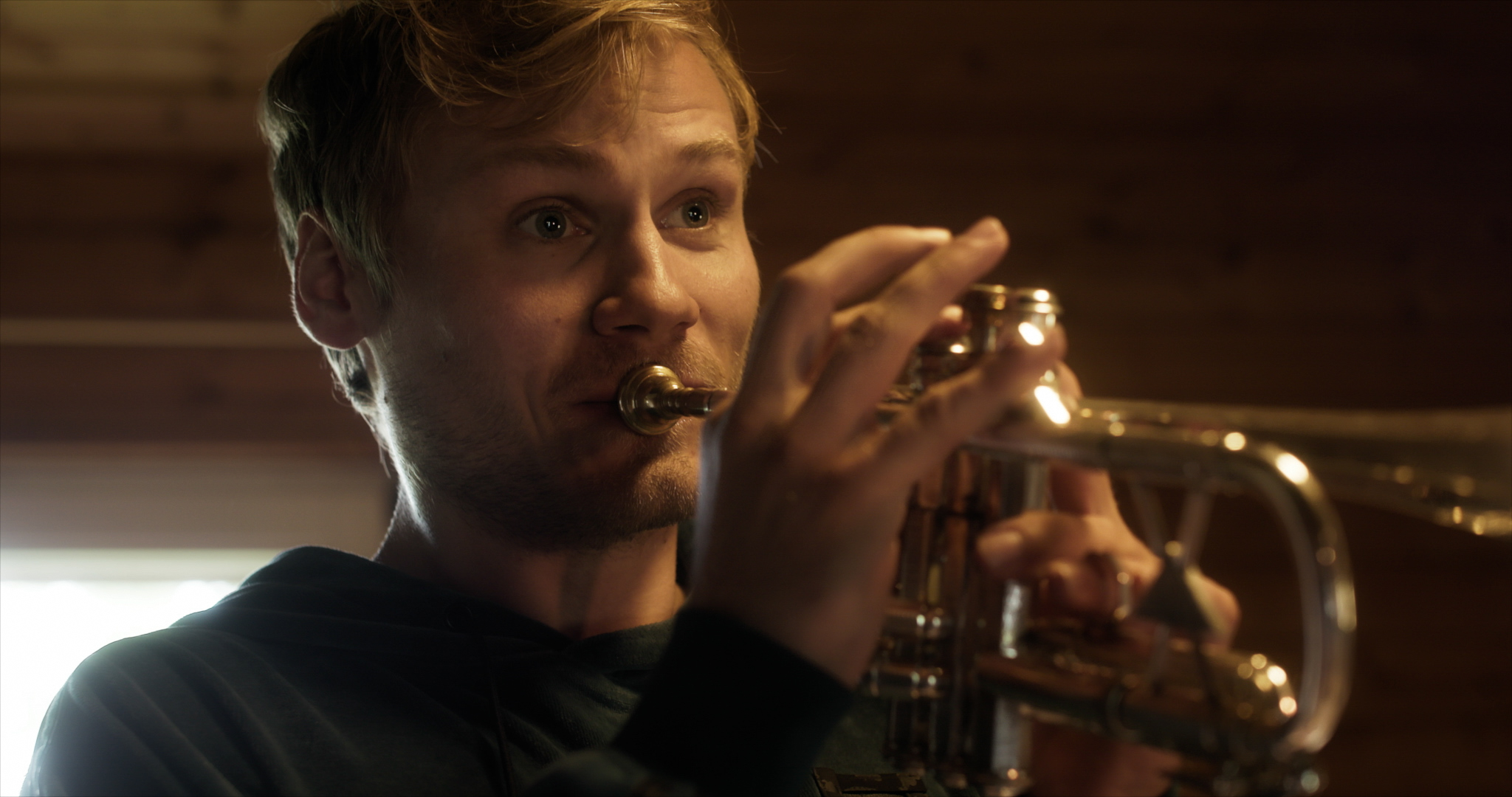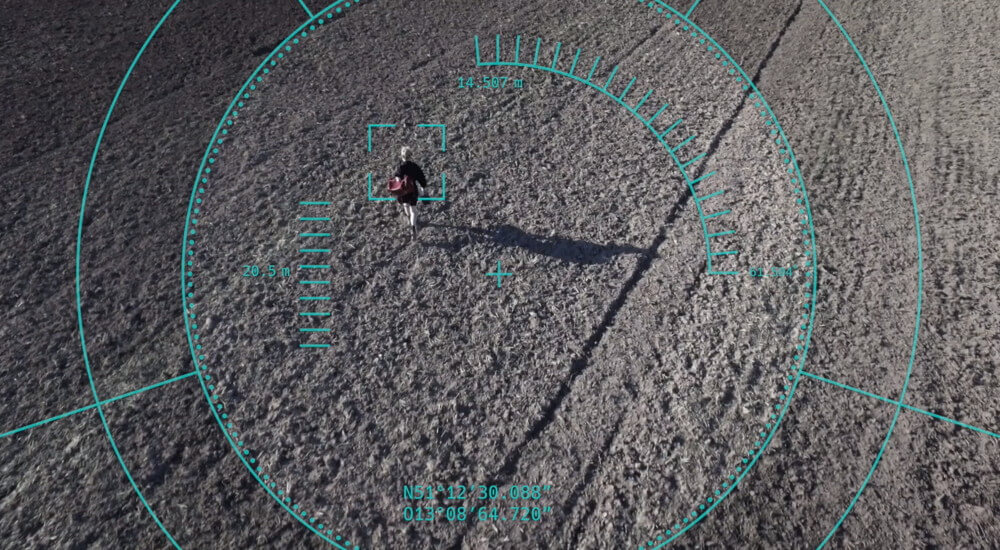ONCE UPON IN THE FUTURE: 2121, LOST IN THE SKY, ECHO PINES EARN TOP HONOURS AT SCIENCE FICTION FESTIVAL AWARDS NIGHT
 Monday, August 28, 2023 at 9:09AM
Monday, August 28, 2023 at 9:09AM
A darkly comic dystopian vision of family dynamics in an underground society has taken out The Ron Cobb Best Film Award at the 2023 Sydney Science Fiction Film Festival.
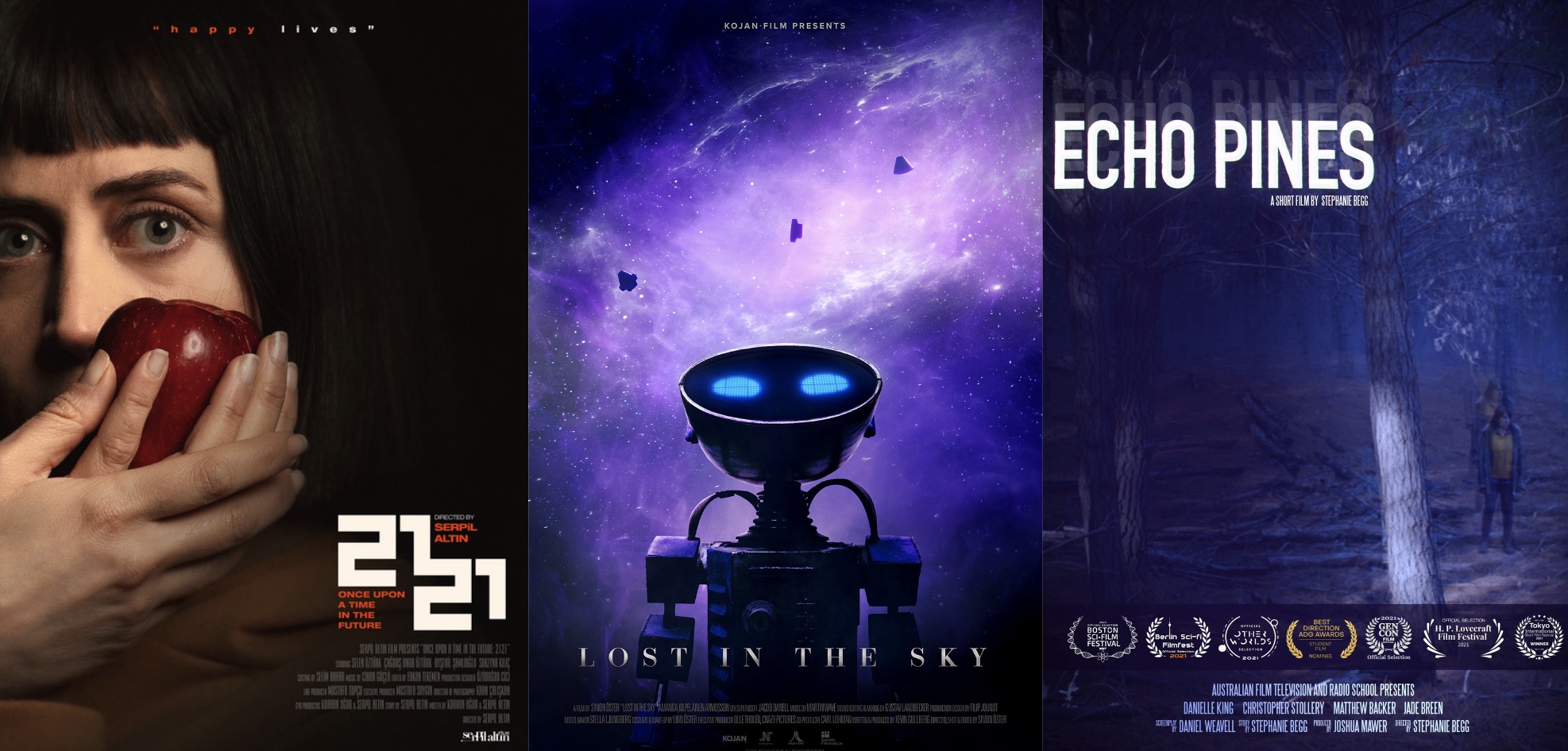
Hailing from Turkiye, Once Upon a Time in the Future: 2121 (Bir Zamanlar Gelecek: 2121), which previously won Best Film at Sci-Fi London, can now add Australia’s leading sci-fi trophy to its award cabinet. The bracingly original concept was brought to life by Serpil Altin, the first Turkish woman to direct a genre feature in her homeland.
The award love was spread across several country’s genre sectors, exemplifying the global reach of the festival, now in its fourth year. Niamh Carolan took Best Actress honours for her angst-ridden turn in John Barnard’s Canadian thriller, Wintertide; Seann Walsh just pipped his co-star Scott Haran in the Best Actor category for his charismatic bad-guy turn in The Bystanders; and, Bulgarian auteur Theodore Ushev took directing honours for his wildly-inventive, Gilliam-esque vision, Φ1.618.
Two Special Festival awards were bestowed for features of unique originality and artistry. Iranian actor/director Shahab Hosseini’s Residents of Nowhere, an adaptation of the afterlife text Hote des deux mondes by Eric Emmanuel Schmitt, and Takayuki Ohashi’s Distant Thunder, the story of three sisters reuniting during Earth’s final hours, were both recognised for profoundly representing mortality and humanity within the fantasy genre.
Simon Öster’s Lost in the Sky took home the Best International Short Film, with several patrons commenting post-screening on the emotional impact of the Swedish film; Stephanie Begg’s well-travelled detective story Echo Pines finally found some hometown love, with the X-Files-like thriller taking Best Australian Short; Julia Vyshnevska (Best Actress for The Orb), Blair Redford (Best Actor for The Many Worlds of George Goodwin) and Lia Tsalta (Best Director for Magma) rounded out the short narrative categories.
Best Animated Film was won by Sydney-based FX maestro Christian Debney for his moving space travel drama, Starship. Best Student Film went to the Chinese sector, for Jiamin Jiao’s The Deep Love, shot as part of her studies at the Communication University of China.
FULL LIST OF WINNERS, RUNNERS-UP AND NOMINEES:
2023 RON COBB BEST FILM AWARD: Named in honour of the late Ron Cobb, an adopted son of Sydney and iconic conceptual artist on such films as Dark Star, Alien, Close Encounters of the Third Kind, Conan the Barbarian and The Abyss.
RESIDENTS OF NOWHERE (D: Shahab Hosseini; Iran)
DISTANT THUNDER (D: Takayuki Ohashi; Japan)
**WINNER** ONCE UPON A TIME IN THE FUTURE: 2121 (D: Serpil Altin; Turkiye)
WINTERTIDE (D: John Barnard)
*Runner-Up* MEMORY OF WATER (D: Saara Saarela; Finland)
PHI 1.618 (D: Theodore Ushev; Bulgaria)
THE BYSTANDERS (D: Gabriel Foster Prior; UK)
SPECIAL MENTIONS: FOR PROFOUNDLY REPRESENTING MORTALITY AND HUMANITY WITHIN THE FANTASY GENRE
RESIDENTS OF NOWHERE (D: Shahab Hosseini; Iran)
DISTANT THUNDER (D: Takayuki Ohashi; Japan)
BEST SHORT FILM (International)
*Runner-Up* MAGMA (D: Lia Tsalta; Greece)
THE DRAFT (D: Raphaela Wagner; UK)
**WINNER** LOST IN THE SKY (D: Simon Öster; Sweden)
THE WISE OLD OWL (D: Quentin Porte; France)
ASSIMILATED (D: Vance Crofoot; USA)
THE BALLAD OF MADDOG QUINN (D: Matt Inns; New Zealand)
2023 BEST SHORT FILM (Australian)
WHITE NOISE (D: Bryce McLellan)
SALVATION (D: Kitty Moroney)
**WINNER** ECHO PINES (D: Stephanie Begg)
EXO-226 (D: Denai Grace)
FIRST-ISH CONTACT (D: Kai Smythe)
*Runner-Up* RETURN CHUTE: SURVIVAL OF A SMALL TOWN VIDEO STORE (D: Simone Attallah)
2023 BEST ACTRESS (Short Film)
DANIELLE KING (Echo Pines; Australia)
**WINNER** JULIA VYSHNEVSKA (The Orb; Ireland)
ANN WILSON (White Noise; Australia)
*Runner-Up* MAGGIE PIRIE (The Ballad of Maddog Quinn; New Zealand)
ANKE SABRINA BEERMAN (The Draft; UK)
CASSIE STIRIES (Pinwheel Horizon; USA)
2023 BEST ACTOR (Short Film)
HERMAN GABHIR (The Traveler; USA)
**WINNER** BLAIR REDFORD (The Many Worlds of George Goodman; USA)
YEONGPYO KIM (Sentence; Republic of Korea)
KAI SMYTHE (First-ish Contact; Australia)
**Runner-Up** ROERD TOCE (Erik; Albania)
GRADY ROSEVEAR-FERRICKS (Beam Me Up; Australia)
2023 BEST ACTRESS (Feature Film)
SELEN OZTURK (Once Upon a Time in the Future; Turkiye)
**WINNER** NIAMH CAROLAN (Wintertide; Canada)
*Runner-Up* SAGA SARKOLA (Memory of Water; Finland)
ANDREA TRAPET (The Antares Paradox; Spain)
MARTINA APOSTOLOVA (Phi 1.618; Bulgaria)
ZOSIA MAMET (Molli and Max in the Future; USA)
2023 BEST ACTOR (Feature Film)
**WINNER** SEANN WALSH (The Bystanders; UK)
SCOTT HARAN (The Bystanders; UK)
BEN KINGSLEY (Jules; USA)
*Runner-Up* ABE GOLDFARB (First Time Caller; USA)
DEYAN DONKOV (Phi 1.618 Bulgaria)
ARISTOTLE ATHARI (Molli and Max in the Future; USA)
2023 BEST DIRECTOR (Feature Film)
*Runner-Up* SAARA SAARELA (Memory of Water; Finland)
JOHN BARNARD (Wintertide; Canada)
**WINNER** THEODORE USHEV (Phi 1.618; Bulgaria)
TAKAYUKI OHASHI (Distant Thunder; Japan)
SERPIL ALTIN (Once Upon a Time in the Future; Turkiye)
MICHAEL LUKK LITWAK (Molli and Max in the Future; USA)
2023 BEST DIRECTOR (Short Film)
**WINNER** LIA TSALTA (Magma; Greece)
DENAI GRACE (EXO-226; Australia)
SIMON ÖSTER (Lost in the Sky; Sweden)
IAN SWEENEY (Time Tourists; New Zealand)
KITTY MORONEY (Salvation; Australia)
*Runner-Up* FRANCESCO PABLO CORDARO and ANDREA CORDARO (Awake; USA)
2023 BEST STUDENT FILM
RECORD. PLAY. STOP (D: Neeraj Bhattacharjee; India)
*Runner-Up* OBELISK (D: Sida Xie; Australia)
**WINNER** THE DEEP LOVE (D: Jiamin Jiao; China)
ECHO PINES (D: Stephanie Begg; Australia)
PROTOTYPE (D: Abril Ruzmed; Germany)
THE STAR TO EVERY WANDERING BARK (D: Patrick Traynor; Australia)
2023 BEST ANIMATED FILM
A ROBOT'S DREAM (D: Morteza Halimi; Australia)
*Runner-Up* SILEO (D: Demeter Lorent; Hungary)
INNERMOST (D: Maing Caochong; China)
**WINNER** STARSHIP (D: Christian Debney; Australia)
FLITE (D: Tim Webber; UK)
MIRA (D: Francesca Armstrong; New Zealand)
 Film Festival,
Film Festival,  Science Fiction,
Science Fiction,  Sydney
Sydney 











